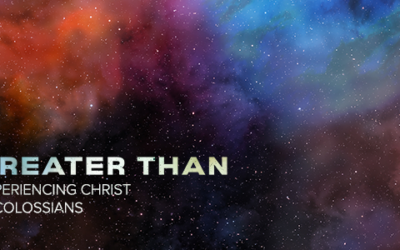Day 2
Lisa Scheffler, author
This week, we’re diving into a new series called, “Smashing our Idols.” We’re going to take an unflinching look at modern-day idols that demand our allegiance and supplant God’s rightful place in our lives.
Yesterday we considered Tim Keller’s definition of an idol, “It is anything more important to you than God, anything that absorbs your heart and imagination more than God, anything you seek to give you what only God can give.” We also looked at some verses that showed us that God strictly forbids the worship of anything or anyone other than himself.
The Old Testament is full of warnings against idolatry and painstakingly illustrates the consequences of not heeding those warnings. Israel suffered greatly for breaking the first commandment and worshipping other gods.
So, here is our guiding question for the week: why is idolatry something that God takes so seriously? Today and tomorrow, we’re going to investigate why idolatry is such a grievous sin. To do that, we’re going to go back to the very beginning and look at how and why God created humanity.
Read
Genesis 1:26–28 (NIV)
26 Then God said, “Let us make mankind in our image, in our likeness, so that they may rule over the fish in the sea and the birds in the sky, over the livestock and all the wild animals, and over all the creatures that move along the ground.”
27 So God created mankind in his own image,
in the image of God he created them;
male and female he created them.
28 God blessed them and said to them, “Be fruitful and increase in number; fill the earth and subdue it. Rule over the fish in the sea and the birds in the sky and over every living creature that moves on the ground.”
Genesis 2:7–9; 15–17; 20–22 (NIV)
7 Then the Lord God formed a man from the dust of the ground and breathed into his nostrils the breath of life, and the man became a living being.
8 Now the Lord God had planted a garden in the east, in Eden; and there he put the man he had formed. 9 The Lord God made all kinds of trees grow out of the ground—trees that were pleasing to the eye and good for food. In the middle of the garden were the tree of life and the tree of the knowledge of good and evil.
…
15 The Lord God took the man and put him in the Garden of Eden to work it and take care of it. 16 And the Lord God commanded the man, “You are free to eat from any tree in the garden; 17 but you must not eat from the tree of the knowledge of good and evil, for when you eat from it you will certainly die.”
…
20 So the man gave names to all the livestock, the birds in the sky and all the wild animals.
But for Adam no suitable helper was found. 21 So the Lord God caused the man to fall into a deep sleep; and while he was sleeping, he took one of the man’s ribs and then closed up the place with flesh. 22 Then the Lord God made a woman from the rib he had taken out of the man, and he brought her to the man.
Ask yourself
- For what purpose did God create humanity? What were they told to do? According to Genesis 1:26, what was significant about the way God created humans?
- Genesis 2 gives us more detail about how God created man and then woman. What do you notice?
Reflect
The account of humanity’s creation is stunning all by itself. An infinite and eternal God designs creatures in his own image and likeness. Genesis tells us that out of the clay he forms the first human and breathes his own life into adam, (the Hebrew word for man) and “adam became a living being”(Genesis 2:7). After putting adam in a deep sleep, he removes what many translations say is a rib, but is closer to “side” in the original language (see the NIV footnote on Genesis 2:21). God forms another living being, a complimentary ally to make humanity’s divine purpose possible. From one being comes two. Eventually Adam will name her Eve because she would become the mother of all the living (Genesis 3:20).
We can gain an even deeper perspective on this amazing account when we consider the ways in which the Genesis creation story subverts the myths told by religions of the time and makes it clear that Yahweh is the one true God. To the ancient people to whom the Genesis account was originally told, certain key elements would have had an even greater significance. The first of these are the words “image” and “likeness.”
According to Old Testament scholar Richard Averbeck, archeologists discovered a statue dated to the ninth century B.C. inscribed with the same two words for “image” and “likeness” as found in Genesis 1:26–27. A statue like this would be placed outside a temple or holy place to claim it for the king and the god he worshipped. The statue itself functioned to represent the king before his god in the place where the statue was set up.
“The implications are obvious. True, we are not just an inanimate statue. The biblical text is using figurative language. Like the statue of a king, we are the ‘statue’ of a king too, the divine king, and we have been set up in the midst of God’s creation to represent him and his interests…We stand before God to serve as his authoritative representatives on this earth ‘in his image as his likeness.’”[1]
According to Old Testament scholar Michael Heiser, the Genesis account also subverts a common belief about the idols people created. Ancient idol worshippers believed that the objects they made were inhabited by their gods. They would perform ceremonies to “open the mouth” of the statue. “The mouth (and nostrils) had to be ritually opened for the spirit of the deity to move in and occupy, a notion inspired by the idea that one needs to breathe to live. The idol first had to be animated with the very real spiritual presence of the deity. Once that was done, the entity was localized for worship and bargaining.[2]”
These ancient idol worshippers had it very wrong. Yahweh had breathed into the nostrils of humanity, sharing his life. False gods and their idols had nothing to offer. Life was a gift given directly from the one Creator to human beings. He gave them a purpose that reflected his creativity and rule. Humans had been given the honor of representing God in his creation. They had free access to him as their Provider — no bargaining was required. Bowing to idols that imaged human rulers and false gods was an insulting and degrading substitute for the worship of the one, true God.
Ultimately, idolatry is dehumanizing. Sacrificing to a created thing representing a false god is to deny the image of God in us. We are his living, breathing likeness. Worshipping at the feet of an idol to beg for its favor demeans our relationship with the Creator that was redeemed by Jesus.
In the modern world, we may not believe that a carved image contains the spirit of a deity or claims its territory. We think we are too sophisticated for that. Yet, we still seek “our best life” from the gods of success, materialism, comfort, and escape. We will debase ourselves in front of the idols of our day rather than turning to the God who loves us and sacrificed himself for us. A grievous sin, indeed.
Pray
Spend some time in prayer worshipping your Creator. Praise him for the inherent dignity you have as his image bearer. Thank him for giving you meaning and purpose — to represent him and his goodness in this world. Commit to rooting out any and all idolatry in your life. Ask the Spirit to reveal himself to you in such a powerful way you can’t help but direct all your worship towards him.
Talk about it
- Based on what you read today, talk about why idolatry is dehumanizing and an affront to our Creator.
Come up with a definition of worship. How is worshipping God life-giving and affirming of our dignity as his image-bearers? How does it acknowledge our dependence on him?
[1] Richard E. Averbeck, “A Literary Day, Inter-Textual, and Contextual Reading of Genesis 1–2,” in Reading Genesis 1–2: An Evangelical Conversation, ed. J. Daryl Charles (Peabody, MA: Hendrickson Publishers, 2013), 25–26.
[2] Michael S. Heiser, The Unseen Realm: Recovering the Supernatural Worldview of the Bible, First Edition (Bellingham, WA: Lexham Press, 2015), 35–36.


